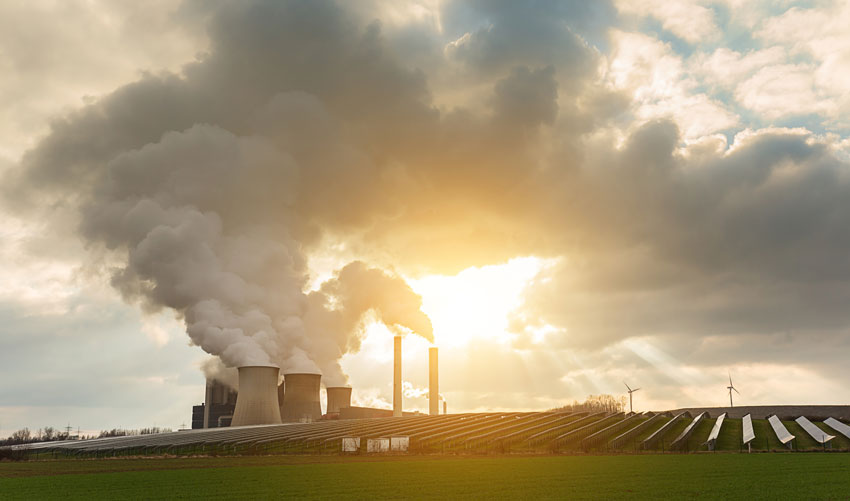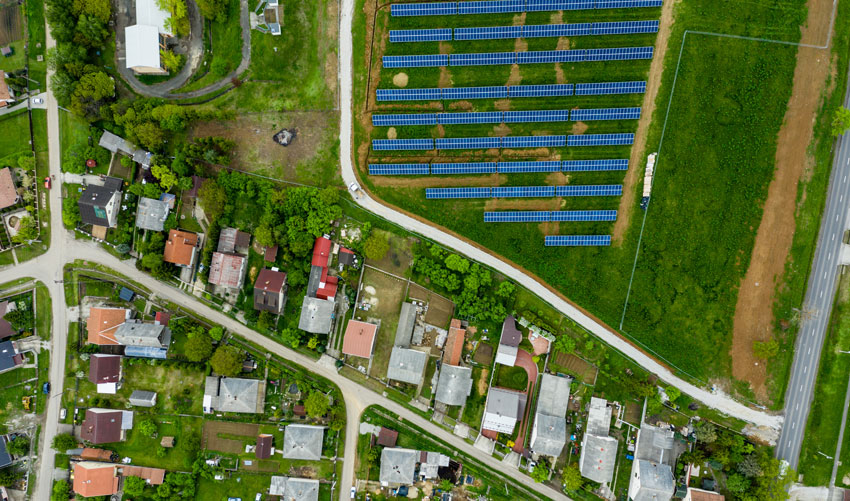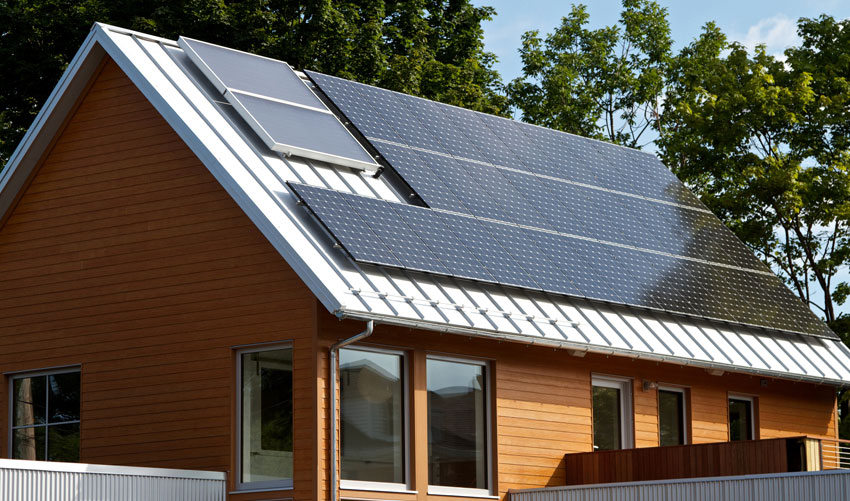The world needs either one sustainable energy source or many energy sources, that satisfy specific energy needs. That is not debatable. The world needs to be able to ‘plug and play’ but the way that is accomplished is regularly under scrutiny.
The world has many different types of energy sources presently. However, due to safety concerns, sustainability, and economic preservation, exactly what should be used for energy is highly debated. Two specific topics of debate are nuclear energy versus solar energy.
Here is a compilation of information about nuclear and solar energy, as well as the pros and cons that come with using each method.
Nuclear energy. Thanks to media sensationalism, fictional movies, and various other stereotypes, nuclear energy has a bad reputation. The first thing people think about when you mention nuclear energy is green smog, three-eyed fish, and the terrible meltdowns that have plagued the energy source’s past.
In truth, nuclear energy is responsible for producing 13% of the world’s electricity, without expelling greenhouse gases.

There are many positive applications of nuclear energy. Although, that doesn’t mean it is without risk. Here are the pros and cons of nuclear energy:
Pros of Nuclear Energy
What many people do not realize is that nuclear energy has been a vital part of the global energy system since the 1950s but the idea actually started in the 1930s. Here are the pros of nuclear energy:
Produces a Low Amount of Pollution: Even though a common thought for most nuclear energy plants involves pollution, nuclear is actually a very low-producing form of energy production. In fact, our current use of nuclear energy in place of fossil fuels already reduces over 555 million metric tons of emissions every year.
Reliable Energy Source: Nuclear energy is a reliable resource. While it might not be completely sustainable, the energy community knows that a certain amount of nuclear energy is needed to produce a certain amount of electricity. Additionally, external factors do not affect the production of energy from a nuclear plant.
High Energy Density: Nuclear Fission, or the process of splitting an atom to create energy, is 8,000 times more efficient than the burning of fossil fuels. That means that while our uranium is depleting, it is much more effective as a source of power than fossil fuels will ever be.
Cons of Nuclear Energy
Despite the depletion of uranium which is used to create nuclear energy, there are a few other issues that make nuclear energy less appealing. Here are the cons of nuclear energy:
Accidents: Accidents at nuclear facilities are (thankfully) extremely rare. Although that doesn’t mean that they don’t happen. Chernobyl that happened in 1986 and the Fukushima Daiichi Accident as recently as 2011 are two of eleven major nuclear accidents. These are terrible instances that completely reshape the world and the safety precautions each time they happen. Even with these safety precautions in place, however, there is no guarantee that a nuclear accident will not happen again. Working with such volatile processes at such high temperatures is extremely dangerous. Therefore, no matter how safe the nuclear energy industry tries to be, there will likely always be the chance that an accident can occur.
Expensive to Build: Currently, the budget for building a power plant is around $9 billion. But that is not even the final bill, as most power plants go significantly higher than their forecasted cost. Of course, a lot of this has to do with safety regulations and ensuring that the right tools and material is available for the job, which is still an obnoxious amount of money for one entity. Fortunately, the day to day costs of a working power plant are cost-effective but the startup cost is still astronomical.
Environmental Impact: The environmental impact of nuclear energy is two-fold. The first comes from nuclear waste. While there are a lot of disposal parameters and it is done with as much safety as possible, there is still a risk to the environment from the radiation. The second, though, is the risk that is forged from mining uranium. Open-pit mining is safer for miners but is more detrimental to the environment, due to the radiation particles left behind. Mining underground is safer for the environment, but it is hazardous to the miners (and it isn’t completely environmentally conscious, either.)
Solar Energy
Solar energy is utilizing the energy from the sun to power our world, in place of nuclear and fossil fuel energy. Now, the world isn’t quite ready for this, because our technology remains inadequate for mass-use. However, when it comes to personal and even commercial use, individuals do have the option to power their homes and buildings with solar energy.

Here are the pros and cons of solar energy as it is available today:
Pros of Solar Energy
There are plenty of reasons to want solar energy to dominate the market. Over the past twenty years, the solar industry has grown significantly and continues to develop. This development, along with technological advancements have even prompted this energy solution to be more affordable.
Renewable: Unlike the depleting energy sources of fossil fuel and even nuclear energy, the sun continues to offer a renewable energy source. The surface of the earth receives 173,000 terawatts of solar energy, or as most people call it, sunlight. That is 20,000 times more power than the world needs to power it consistently.
Safety: The most dangerous part of solar power is the installation and that is just getting on a roof. Other than that, there are no safety concerns that are anywhere close to the hazards of nuclear and fossil fuel energy collection.
Solar Power offers a lot of Options: The more advancements that come with solar innovation, the more options you will have to make this system work to fit your lifestyle and needs. Currently, there are many different aesthetic and product options; such as being able to supply power to your whole house or just a pool heater.
Cons of Solar Energy
Solar energy does have its drawbacks, though. Fortunately, most of the cons that are inhibiting mass production of solar energy are due to technology not yet being where it needs to be to get the consistent results we need. Here are the cons of solar energy:
Unpredictability: Solar energy is currently unpredictable because the sun does not provide the same amount of energy in every place, on every day. It is almost completely contingent on the weather and the intensity of the sun’s rays. For instance, the desert gets a lot of sunshine, where Alaska goes for months without sunshine every year. Regulating this difference is still a challenge; especially since from 4-9 pm, energy usage is at its peak in most households, when there is not as much available sun and wind energy.
Upfront Cost is High: Any way you cut it, with solar energy there will be a high upfront cost. Even with getting grants from the state and government, you are still going to have to put something out upfront; especially if you are buying solar energy. There are loan and lease options, but if you are looking to make a true investment, buying solar outright is going to be your best bet.
Long-Term Commitment: You cannot take solar panels with you when you move. Therefore, they are a long-term commitment; both for purchasing and for receiving the savings on energy costs. So, if you are thinking about investing in a solar energy solution, make sure you plan to stay in your current home for a few decades.
In summation, solar energy is definitely a safer method of fueling our world’s electricity. However, as presented here, there are also certain aspects of solar energy that make it impossible to currently forgo all other types of energy collection; and that includes nuclear. Hopefully, someday, the world will come to a unanimous decision about the best source of energy, along with having the right tools and infrastructure to make it a cost-effective and globally sufficient operation. Until then, though, it is up to you, as an individual to decide the correct course of action for you and your household.




